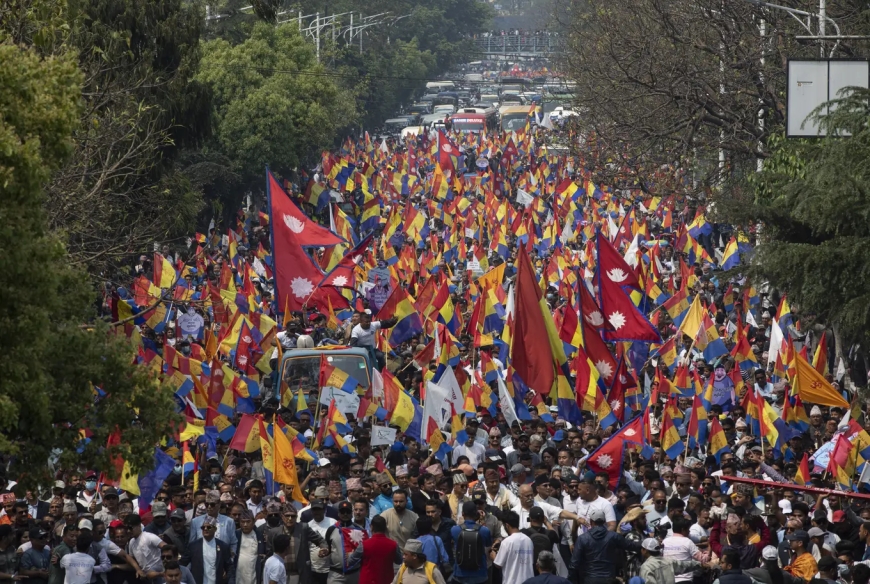Protests in Kathmandu Demand Return to Monarchy Amid Political Discontent
In a surprising turn of events, several thousand demonstrators have taken to the streets of the Nepalese capital, Kathmandu, this week, demanding the abolition of democracy and a return to monarchy. Chanting slogans like "King, come back, save the country," protesters gathered in what marked the largest demonstration in recent months, culminating in clashes with authorities and violent confrontations.

The call for a return to monarchy comes sixteen years after Nepal abolished its monarchy in 2008, following massive street protests advocating for democracy, which led to the abdication of then-King Gyanendra Shah. Since then, Nepal has functioned as a republic, with governance overseen by a prime minister appointed by parliament. Former King Gyanendra now lives as a private citizen without royal titles or privileges.
The roots of this resurgence in monarchist sentiment can be traced back to widespread disillusionment with the current political landscape. Nepal has witnessed a revolving door of thirteen governments in just sixteen years, characterized by political fragmentation, coalition-building, and a lack of substantial reforms. Despite being one of the world's poorest nations, some politicians have been implicated in egregious acts of corruption, exemplified by recent revelations surrounding the construction of the new international airport in Pokhara.
In addition to political frustrations, the protests also harbor religious undertones, resonating with the surge of Hindu nationalism emanating from neighboring India. Organized by the Rastriya Prajatantra Party (RPP), the demonstrations not only advocate for a return to monarchy but also demand Nepal's designation as a Hindu kingdom. Presently, Nepal is a secular state, with approximately eighty percent of the population adhering to Hinduism. The RPP's ties to India's ruling Bharatiya Janata Party (BJP) underscore the religious and political dimensions of the protests.
Former King Gyanendra's interactions with prominent BJP figures like Yogi Adityanath, the Chief Minister of Uttar Pradesh and a staunch advocate of Hindu nationalism, suggest a concerted effort to garner support for the monarchy's reinstatement. However, obstacles to such a revival remain significant, as all major political parties have voiced opposition to the return of the monarchy, necessitating parliamentary self-disempowerment to facilitate any constitutional changes.
As Nepal grapples with renewed debates over its political future, the protests underscore the complex interplay between historical legacies, political grievances, and religious influences shaping the country's trajectory.













































